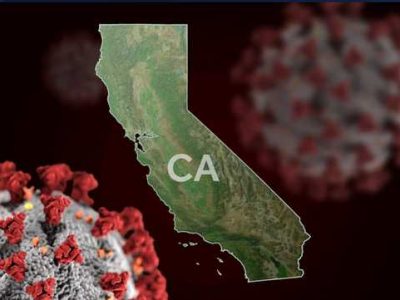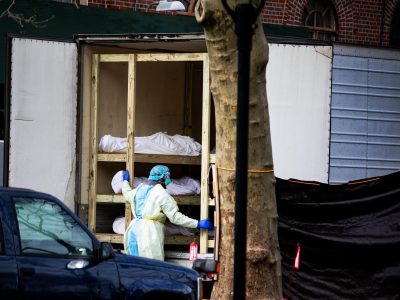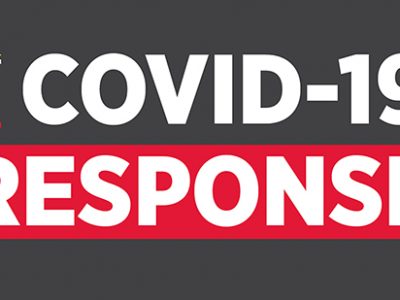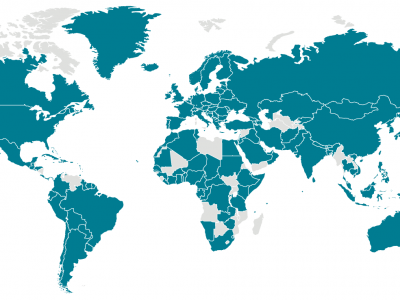Health
California and the Coronavirus: A Timeline
The first reported California death was a month ago. It seems more like an eon has passed.
How does coronavirus hit a state? First slowly, and then very fast. California was one of the first places in the U.S. to be hit with the coronavirus, and also one of the earliest to take action. Here’s a timeline, with some national events for comparison: January Jan. 25. First California coronavirus case reported. February …
Continue reading “California and the Coronavirus: A Timeline”
CONTINUE READINGAfter the Peak, the Worst Could Still Be Yet to Come
Don’t break out the champagne when infections peak. Most deaths could happen afterwards.
There are some indications that we may be getting closer to the peak of new coronavirus cases in New York, and with luck the national peak may not be too far off. That would be welcome news when it comes. But it would be dead wrong to declare victory or assume that the worst is …
Continue reading “After the Peak, the Worst Could Still Be Yet to Come”
CONTINUE READINGInslee v. De Blasio: Coronavirus Responses, Good and Bad
As it turns out, telling New Yorkers not to worry about the virus was a really bad idea.
The state of Washington seems to be a model of success in dealing with the coronavirus. What can we learn from that experience? And how did Washington’s approach differ from that of another hotspot with about the same population, New York City? Let’s begin by taking a look at how the situation developed in Washington. …
Continue reading “Inslee v. De Blasio: Coronavirus Responses, Good and Bad”
CONTINUE READINGDoes the Constitution Exempt Churches from Social Distancing?
Short answer: “No.” And it might even be unconstitutional for states to grant such exemptions.
Most religious groups have willingly complied with public health limits on large gatherings. But not all. These claims of religious exemption, and some states’ responses to them, raise important constitutional issues. There have been a couple of cases in the spotlight. Rodney Howard-Browne is a Florida preacher who prayed over Trump in the Oval Office …
Continue reading “Does the Constitution Exempt Churches from Social Distancing?”
CONTINUE READINGResponses to COVID-19 : An International Comparison.
What can we learn from other countries’ efforts to control the virus?
Countries around the world have taken different pathways in responding to coronavirus. We can learn from their experiences– sometimes what to avoid, sometimes what we might do in the next phase of disease response. We should be starting to get a sense of what works, although a lot of rigorous study will be necessary to …
Continue reading “Responses to COVID-19 : An International Comparison.”
CONTINUE READINGIs Saving Lives Unconstitutional? A Response to John Yoo
Takings law is complicated, but the answer to this question is clear. The answer is no.
Like others on the extreme right, the Hoover Institution is campaigning against “stay at home” orders because they cost too much money. Regrettably, the most recent argument to this effect on their website is by my colleague John Yoo. He argues that the Constitution requires states to compensate business owners for their losses. That’s simply …
Continue reading “Is Saving Lives Unconstitutional? A Response to John Yoo”
CONTINUE READINGInterpreting Models of Coronavirus Spread
Models are crucial to making policy decisions during the epidemic, but you have to know how to use them.
This post works through an exercise in how to use and interpret models of disease spread. Here are the takeaways for policy analysis: You need to know about a model’s sensitivity. Particularly in settings where the specific numbers really matter, such as forecasting how many hospital beds will be needed, it’s important to take into …
Continue reading “Interpreting Models of Coronavirus Spread”
CONTINUE READINGThe Epstein Affair
A prominent law prof got COVID-19 numbers disastrously wrong. Then things got worse.
The New Yorker recently published a devastating interview with law professor Richard Epstein. He had attracted their notice by publishing two columns on the Hoover Institution website, the first projecting a total of 500 U.S. deaths from the coronavirus (later raised to 5000), and the second defending his work. I don’t see any need to …
Continue reading “The Epstein Affair”
CONTINUE READINGTransit-Oriented Development Shouldn’t Be A Coronavirus Casualty
California still needs more housing close to transit.
In recent weeks, California has emerged as one center of the COVID-19 pandemic, but it continues to face challenges that existed long before the disease reached the state. Two serious ones: how California will meet its ever more stringent greenhouse gas emission reduction targets, and how the state will manage to provide affordable housing for …
Continue reading “Transit-Oriented Development Shouldn’t Be A Coronavirus Casualty”
CONTINUE READINGThe Environmental Pollution Agency Prioritizes Environmental Rollbacks While Dropping Environmental Enforcement
New Policy Allows Companies to Use Covid-19 As an Excuse to Pollute
The covid-19 epidemic is providing the Environmental Protection Agency with the perfect opportunity to demonstrate its priorities: full speed ahead with environmental roll backs, including greenhouse gas/fuel economy standards for cars, cutting back on the regulation of mercury from power plants, loosening regulations on coal ash from coal plants and more. Employees at EPA have …
CONTINUE READING











